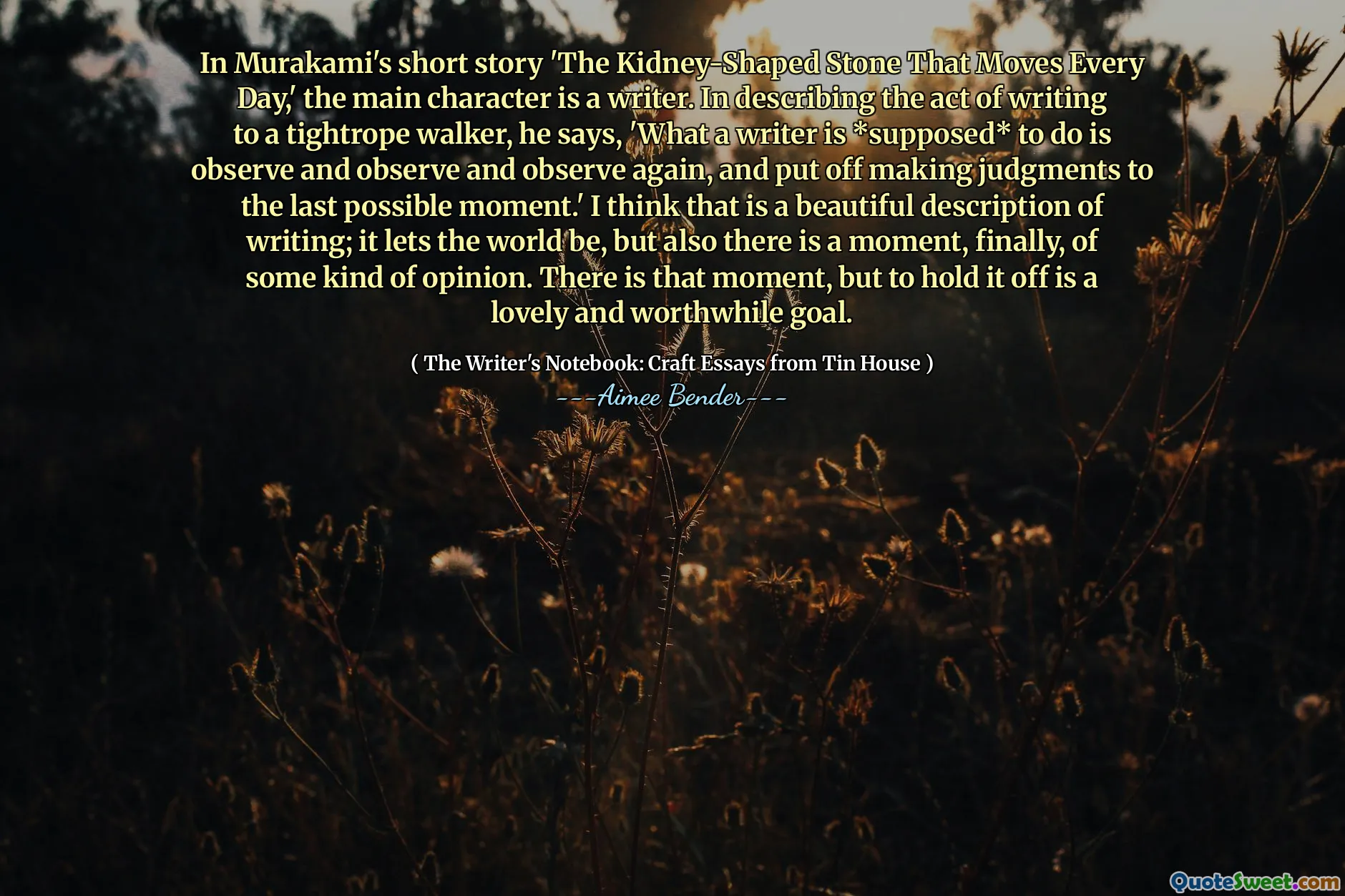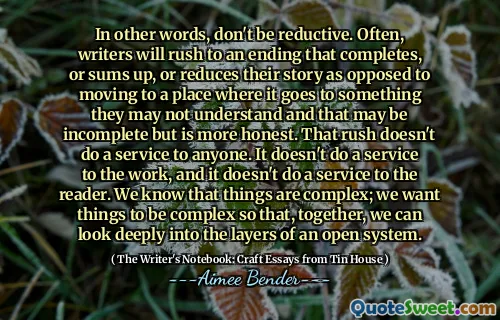
In Murakami's short story 'The Kidney-Shaped Stone That Moves Every Day,' the main character is a writer. In describing the act of writing to a tightrope walker, he says, 'What a writer is *supposed* to do is observe and observe and observe again, and put off making judgments to the last possible moment.' I think that is a beautiful description of writing; it lets the world be, but also there is a moment, finally, of some kind of opinion. There is that moment, but to hold it off is a lovely and worthwhile goal.
In Haruki Murakami's short story "The Kidney-Shaped Stone That Moves Every Day," the protagonist, a writer, engages in a conversation about the nature of writing with a tightrope walker. He emphasizes the importance of observation in the writing process, suggesting that writers should delay their judgments until the last moment. This approach reflects a deep appreciation for the world as it is before imposing personal views or interpretations.
Aimee Bender, in her book "The Writer's Notebook: Craft Essays from Tin House," finds beauty in this description of writing. She believes that the practice of observing without rushing to conclusions fosters a richer understanding of one's surroundings. While ultimately a writer must express opinions, the value lies in the patience and openness maintained throughout the observation process.







